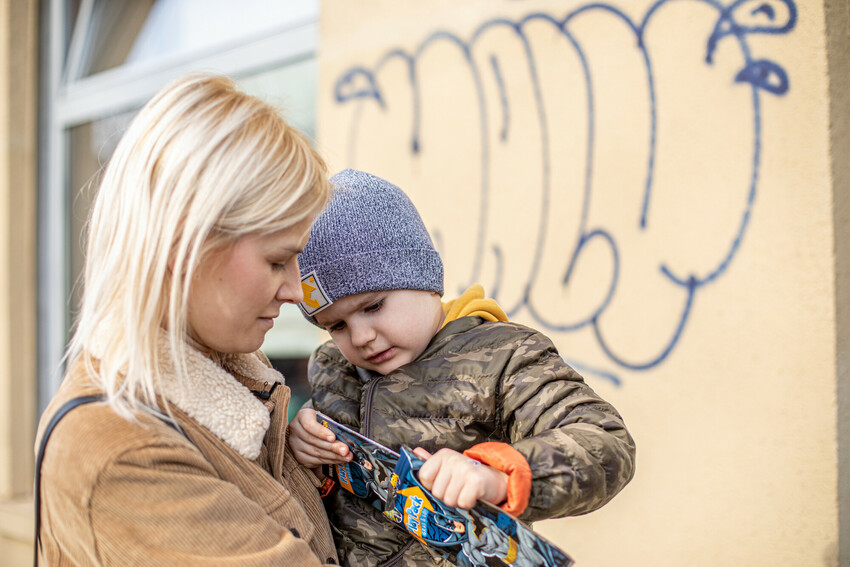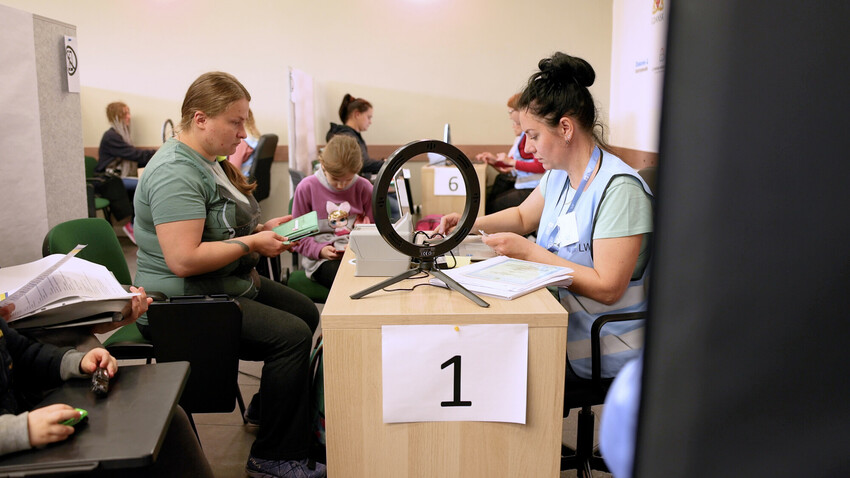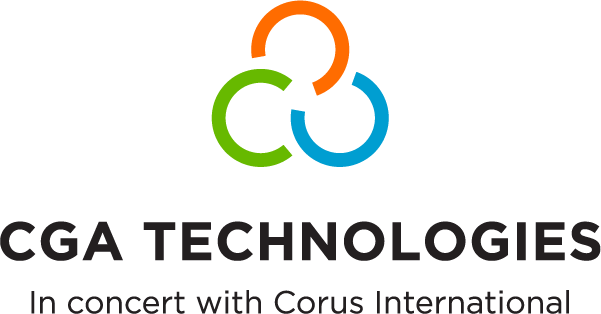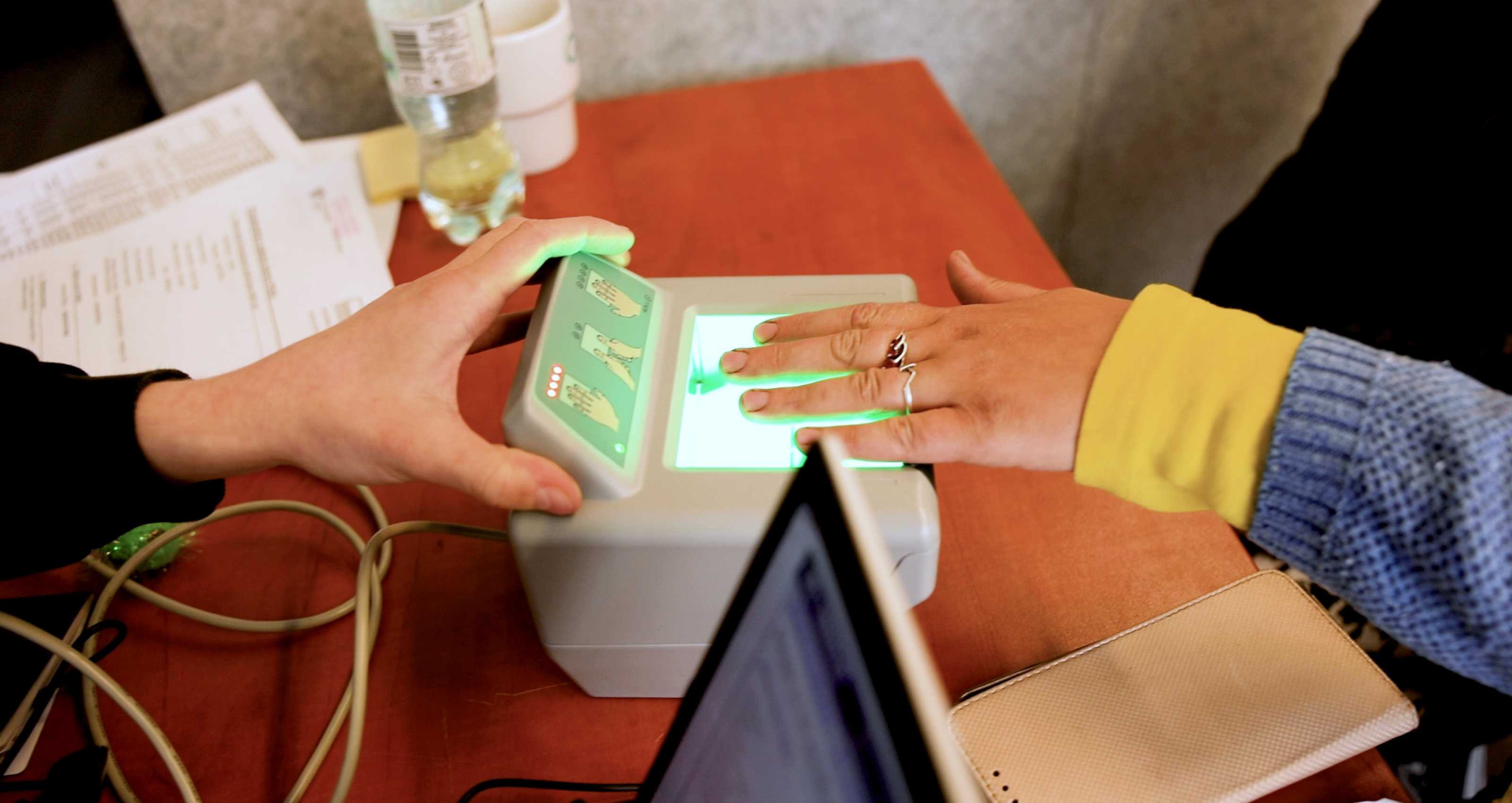Since the Russian invasion of Ukraine in February 2022, over five million refugees have crossed the border into Poland, most of them women and children. While many have continued on to other countries, roughly two million have remained.
Due to the urgency with which they were forced to flee their homes, many arrived with very little by way of supplies or cash to support their basic need for accommodation, medication and even food.
The Corus International family of organisations immediately responded to the crisis, bringing together expertise from Lutheran World Relief, CGA Technologies and IMA World Health.
From the very first days of the war, donations from all over the globe began pouring in, with one million USD raised in the first month of the crisis alone.
The challenge from the outset was how to bridge the gap between these generous donations and rapidly meet the urgent needs of Ukrainian refugees on the ground in a country where Corus organisations did not yet operate in.
The case for cash transfers
In March, the UNHCR identified multi-purpose cash as the most appropriate strategy to meet the immediate basic needs of Ukrainian refugees.
Cash transfers have long been used by governments and the development and humanitarian sector as a way to combat poverty and support people affected by disasters and conflicts. Quick, flexible and dignified, unrestricted cash transfers can be made directly to phones allowing individuals to prioritise their own needs. In the case of Ukrainians, it also allows them to maintain their freedom to travel in-country as needed, which many are forced to do with limited availability of accommodation and wrap-around support services in the urban centres of Warsaw, Krakow and Gdansk.
When Ukrainian refugee, Marta, arrived to Poland with her family, they were in need of cash as she waited in line at a supplies distribution centre. She shared, “With three children, we had money just for fuel, that's all. 70 hours straight in a line. I drove for three nights and four days without sleeping.”

Building partnerships
In alignment with this approach, Corus organisations partnered with the Lutheran World Federation (LWF), to support the delivery of cash transfers to 66,000 refugees by pooling LWR, UNHCR and Diakoni Germany funding, and working in collaboration with our local partners like the Evangelical Church of the Augsburg Confession (the Polish Lutheran Church).
Corus led the design of LWF’s cash programming by leveraging CGA Technologies Cash and Voucher Assistance (CVA) expertise. With our strong record of delivering cash transfers, at scale, across sub-Saharan Africa, we were able to bring our experience from the development sector to establish the cash programming approach for LWF.
Working closely with Poland’s Cash Working Group, local government, local NGOs and church partners, CGA staff were deployed to Poland to provide direction on appropriate technology, financial service provision, pathways to wrap-around services (such as protection) and, eventually, integration with Polish social assistance.
How the system works
Using the enrolment and payment platforms established by UNHCR, and the presence and facilitation of local church partners, LWF rapidly established six centres across the country - in Gdansk, Ostroda, Wroclaw, Bytom, Zgierz and Bielsko Biala – where particularly vulnerable refugees could be referred to the program by local government, LNGOs or the UN for cash transfer enrolment. The digital payment platform also facilitated refugee self-referral.

Once referred, refugees book an appointment online at their centre of choice. At their appointment, they (and their family/dependents) are biometrically registered with their fingerprints – to facilitate rapid verification in the country-wide system – and referred to any additional services they might need, such as counselling or medical assistance.
Within 24 hours, their profile is verified and they receive an SMS with their unique code which is shared directly to their mobile phone via BLIK, a digital transfer provider. This one-time pin allows refugees to withdraw their transfer from an ATM within seven days of receipt.
Refugees receive 700 zloty ($148) for the head of household and 600 zloty ($126) for each subsequent household member. The programme lasts for three months and provides three bulk monthly payments to each registered family. Already, since payments began in May, 47,189 individuals have registered to receive support.
One such individual is Ukrainian refugee Diadus who sought out cash assistance at the Ostroda centre after fleeing Kyiv with her grandchildren. Her grandchildren learned about the cash distribution centre online and their host family drove them 70km to sign up. “We learned that there is this centre and it can provide us with help that will last at least for some time. We're feeling really great here, we're being taken care of and helped,” she said.
Not only do these payments support families to meet their immediate needs, such as shelter, clothing and food, enrolment to the programme also helps refugees connect to wrap-around services provided by protection specialists and medical staff at each centre, in addition to further support offered by church communities, such as childcare and language classes.
Corus’ Chief Humanitarian Officer, Tamara Demuria, said: “Dignity, prompt service and convenience are the least we can do for our remarkable Ukrainian brothers and sisters. These systems enable that, and Corus is proud to play a part in using technology to achieve that.”
Impact
In total, the programme, which is due to conclude this month (September 2022), will support 66,000 individuals: 60,000 with UNHCR funding, and 6,000 with pooled Corus and Diakoni funding. So far, 47,189 individuals (roughly 20,516 families) have been enrolled.
In addition to committing more than US$2 million to emergency cash transfers, Corus has committed a further US$8 million to response efforts. Our Corus family member IMA World Health provides technical guidance for the continued integration of sexual exploitation and abuse protection services at cash grant sites. LWR is shipping and distribution quilt and care kits in partnership with local organisations and works with church partners to provide essential supplies to a women and children’s hostel in Gdansk. LWR is also partnering with the Federation of Trade Unions of Ukraine (FPU) to support union-run centres that are being used for temporary housing.
The Corus family will continue to coordinate with other cash partners to identify opportunities to align humanitarian programmes with Polish social assistance for long-term integration of refugees to national support.


